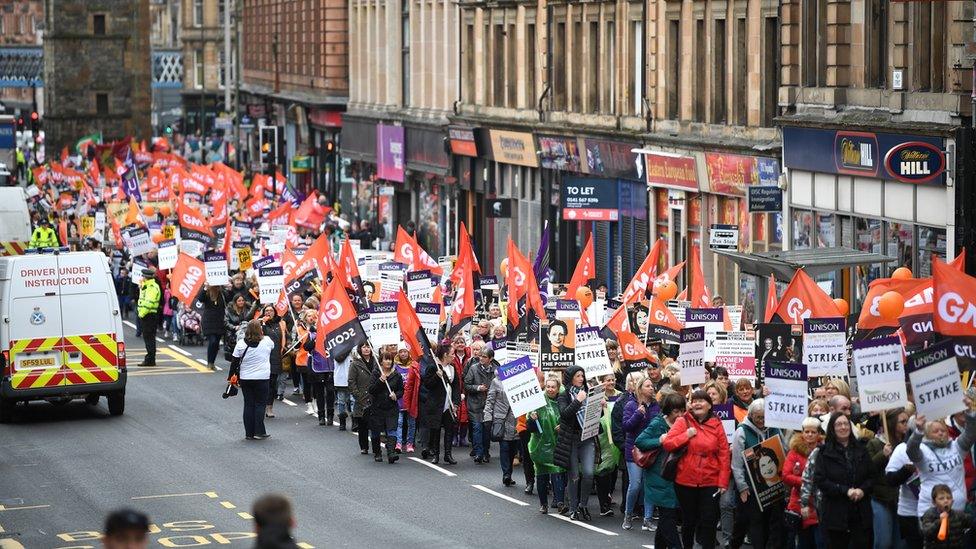Glasgow City Council still processing equal pay claims
- Published
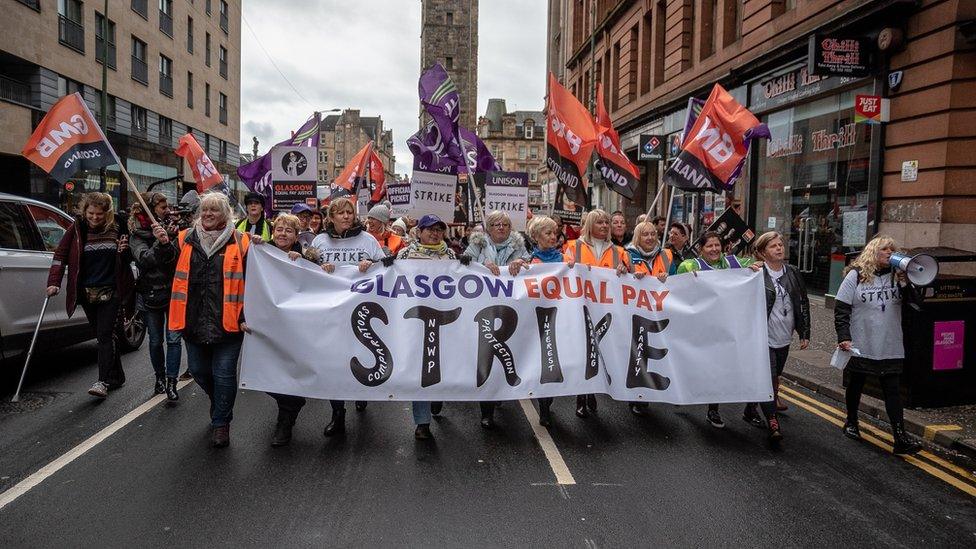
Thousands of council workers staged a strike over the dispute
Glasgow City Council has settled 98% of equal pay claims but hundreds of cases are still outstanding.
Local authority watchdog the Accounts Commission praised the council for its handling of the dispute, which will cost £505m to settle.
In a report it said by the end of August last year the council had settled the vast majority of claims, external.
But in November there remained about 150 settlements outstanding as well as 480 other claims.
Some of these are "instances where the case has been difficult to finalise", including where the women involved had not returned signed agreement forms, or the claimant had died and the council was working with their estate or executor.
The 450 other claimants are not being acted for by the main representatives, and the agreed settlement does not include them.
The report said the council had "successfully delivered a challenging and complicated project within a relatively short period of time".
The Accounts Commission stressed: "The council is committed to finalising all outstanding settlements in so far as it reasonably can."
A claimant group, which included the unions GMB, Unison and Unite, as well as Action 4 Equality, reached the deal with the council last year.
That came after about 8,000 Glasgow council workers walked out on strike for 48 hours in October 2018 in a bid to settle the long-running pay claim.

What was the dispute about?
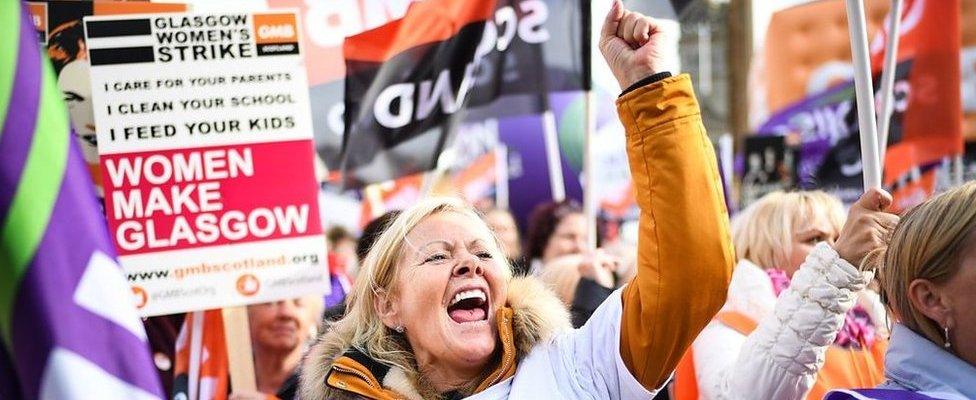
Workers took part in a 48-hour strike over equal pay
The dispute centred around workers in traditionally female-dominated roles such as catering or home care being paid up to £3 an hour less than those in male-dominated jobs, such as refuse workers or grave diggers.
In 2017, two judgements at the Court of Session ruled that both the council's payment protection scheme and its Workforce Pay and Benefits Review discriminated against women workers.
Some of the equal pay claims are thought to go back 12 years. The women affected will receive an average of £35,000 each
To pay for the claims, Glasgow City Council approved plans to sell off major venues to an arm's length body before leasing them back.
Plans were put in place to remortgage venues such as the Armadillo, the Emirates Arena, the Riverside Museum and Toryglen Regional Football Centre and then lease them back to the council - with the cost of the lease designed to meet the loan repayments.

The Accounts Commission said: "Overall, the council has successfully delivered a challenging and complicated project within a relatively short period of time.
"Key to this were the governance and management arrangements that the council put in place around the project."
Accounts Commission chairman Graham Sharp said: "We welcome that the council successfully delivered a challenging and complex project within a short space of time, with good governance arrangements and appropriate controls to ensure equal pay settlements were accurate."
A Glasgow City Council spokesman said: "This was one of the biggest projects of its kind ever undertaken by a local authority - delivered against an extremely challenging timescale.
"At all times, our priority has been to get the right result for claimants, the rest of our workforce and the hundreds of thousands of Glaswegians who depend upon the services the council provides."
- Published27 June 2019
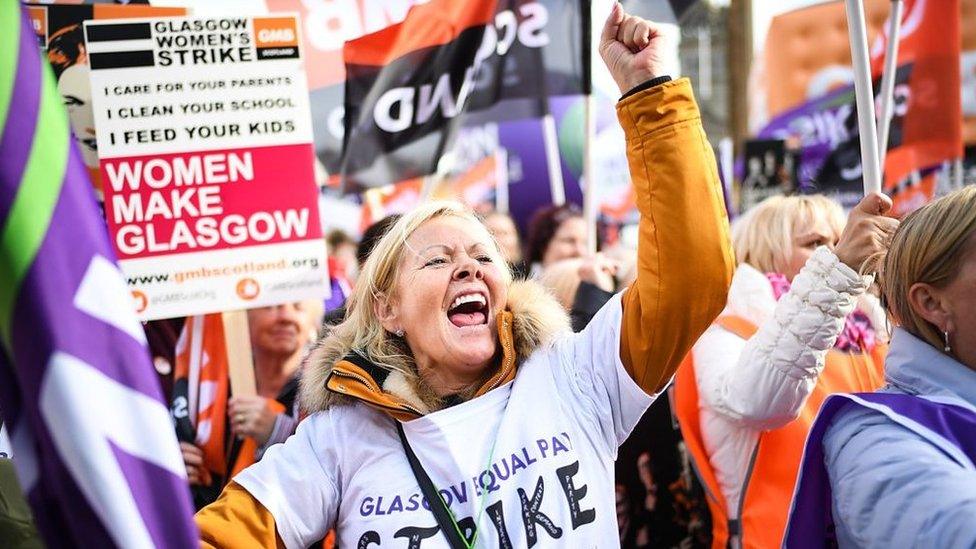
- Published22 May 2019

- Published7 February 2019
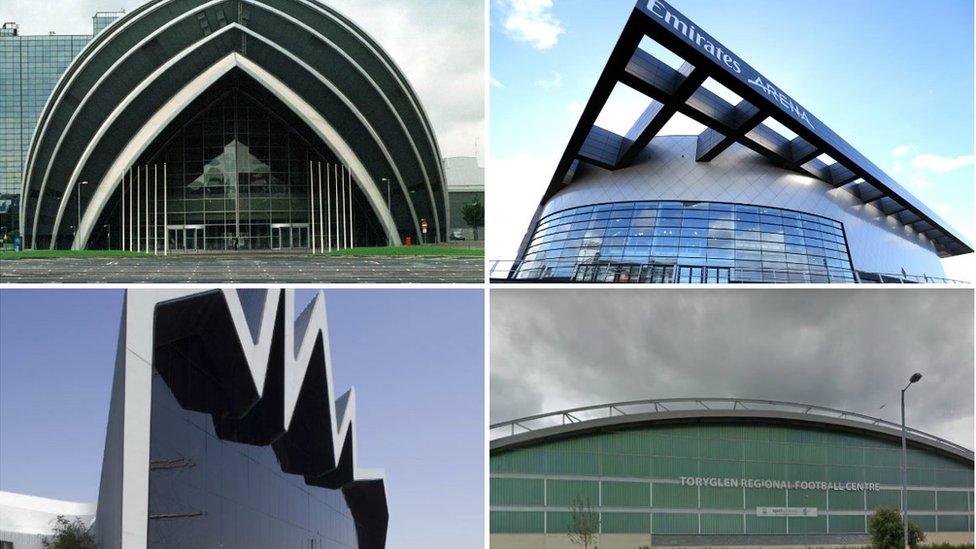
- Published17 January 2019
